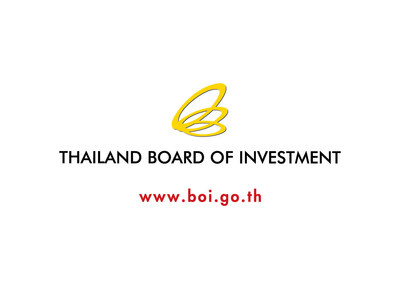Robotics and Automation: Reshaping Economy on Thailand 4.0 journey
Press Releases
Nov 10, 2017
BANGKOK, Nov. 10, 2017 /PRNewswire/ — Value creation is the key focus in transforming Thailand under the Thailand 4.0 model. In the manufacturing sector, robotics and automation technology plays a key role in creating value — and that’s why it has become a key player in the country’s future.

Over the last three decades, Thailand has become a leader in the global automotive and electronics and electrical appliance industries, the two industries that mainly drive global robotics and automation growth. As the world’s second-largest global producer and exporter of hard-disk drives and the world’s sixth-largest commercial vehicle producer, Thailand has been using robotics and automation technology. With continuous adoption of such technology, it is now time for Thailand to go for more advanced technology to support the transformation of its economy under the Thailand 4.0 model.
Changing landscape drives higher demand
Ms. Duangjai Asawachintachit, Secretary General of Thailand Board of Investment (BOI), said, “Advanced technologies are changing the business landscape, especially in the manufacturing sector”.
“We now see many companies transitioning into industry 4.0, making use of artificial intelligence, big data management and the Internet of Things to seamlessly work together to exponentially increase both production and productivity,” said Ms. Duangjai.
Over the past few years, manufacturers in Thailand have invested heavily in machinery and systems to increase the utilization of automation system and remain competitive in the global manufacturing arena. In addition, 50 per cent of Thai manufacturers are considering the adoption of automation systems within 1-3 years while medium-sized businesses will be ready in 3-5 years, followed by small companies in five years or more. This development has opened greater opportunities in Thailand’s robotics and automation industry.
The industrial robotics industry in Thailand has expanded dramatically over the past decade due to a strong customer base. The size of Thailand’s shipments of industrial robots is estimated to increase by 133% from 2,131 units in 2013 to 7,500 units in 2018.
Supporting ecosystem readiness
While demand is constantly increasing, Thailand’s infrastructure and ecosystem are ready to support the robotics and automation industry.
The Thai government earlier announced robotics and automation among its targeted future industries. To support this policy, educational institutions have provided support for research and development and human resource training. For example, the Institute of Field Robotics (FIBO) of King Mongkut’s University of Technology, Thonburi, is offering undergraduate and graduate programmes in robotics and automation engineering. In 2015 alone, 76 universities and 83 vocational schools produced 82,259 graduates in engineering and related courses.
The BOI offers a wide range of tax and non-tax investment incentives for projects that meet national development objectives. The BOI offers up to eight years of corporate income tax exemption on machinery and import duty for raw material for export production. For projects related to assembling robots or automation equipment and/or automation parts, investors will enjoy five-year corporate tax exemption.
Those investing in robotics and automation in Eastern Economic Corridor (EEC) area will also be given another 50 per cent corporate income tax reduction for another five years.
Meanwhile, other non-tax incentives include permission to bring in expatriates, own land and take or remit foreign currency abroad.
More opportunities explored
“Other than the manufacturing industry, social context also matters. Considering that Thailand aims to be the medical hub of Asia and that the country is rapidly becoming an ageing society, service robots that can be integrated with people’s lifestyle are increasingly important,” said Ms. Duangjai.
The country has seen more and more innovations in medical robotics. They include Fhasai, robot-assisted therapy for children with autism spectrum disorders; Dinsow, an elderly care robot; Sensible Tab, an arm rehabilitation robot; B-Hive, a pharmacy automation system to refill medicines at a rate of 20 seconds per prescription; and Bumbee, a medical dispenser robot.
“We believe in the future of the robotics and automation industry and the benefits it will bring. In the end, we can expect more value being added to the Thai economy,” said Ms. Duangjai.
For more information, please contact:
Thailand Board of Investment (BOI),
Tel. +66 (0) 2553 8111 Ext. 6932
visit www.boi.go.th or email to [email protected]
View original content with multimedia:http://www.prnewswire.com/news-releases/robotics-and-automation-reshaping-economy-on-thailand-40-journey-300553763.html
SOURCE Thailand Board of Investment (BOI)



